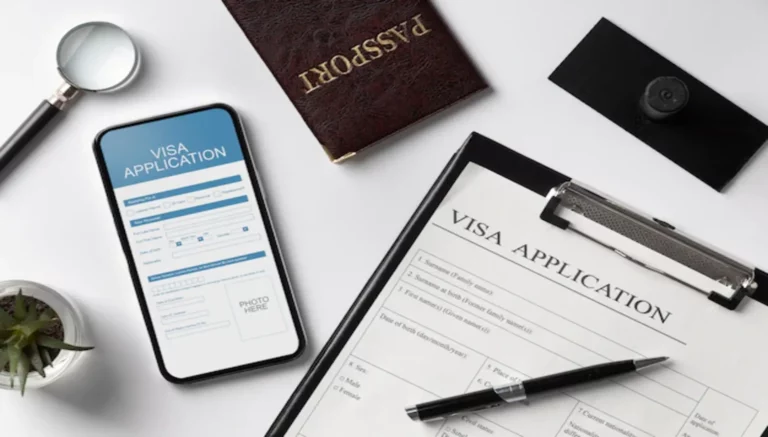
Applying for a student visa in Germany is a crucial step for international students aspiring to pursue their education in this vibrant and culturally diverse country. To ensure a smooth and successful visa application process, it is essential to understand the required documents in detail. This comprehensive guide will provide you with an extensive overview of the essential documents needed for a student visa application in Germany.
Valid Passport
Your passport is the most critical document when applying for a student visa in Germany. Make sure your passport is valid for the entire duration of your intended stay in the country. It is advisable to renew your passport if it is due to expire within the next six months.
Visa Application Form
The next crucial step is to complete the visa application form accurately. You can obtain the application form from the German embassy or consulate in your home country. Make sure to provide all the required information, including personal details, educational background, and intended duration of stay.
Letter of Acceptance from a German University
A letter of acceptance from a recognized German university or educational institution is a mandatory document. This document verifies that you have been admitted to a program of study in Germany. Make sure that your letter of acceptance clearly states the duration of your course, the language of instruction, and the start and end dates of the academic year.
Proof of Financial Resources
Germany requires international students to demonstrate sufficient financial resources to cover their living expenses during their stay. You will need to provide bank statements, scholarship award letters, or a sponsorship letter from a guardian or sponsor confirming their financial support. The minimum amount required varies each year, so make sure to check the current financial requirements.
Health Insurance
Health insurance is mandatory for all international students in Germany. You must obtain health insurance that meets the requirements of German law. You can choose between public or private health insurance options, but make sure the coverage is valid in Germany and for the entire duration of your studies.
Proof of Language Proficiency
Depending on the language of instruction for your chosen program, you may need to provide proof of your language proficiency. Generally, this is demonstrated through recognized language tests such as TestDaF, DSH, or Goethe Institute examinations. Check with your chosen university for specific language requirements.
Proof of Accommodation
You must provide proof of accommodation arrangements in Germany. This can be in the form of a rental agreement, a letter from your university confirming your accommodation in student dormitories, or a letter of invitation from a German resident if you plan to stay with a host family.
Passport Photographs
You will need to provide recent passport-sized photographs according to the specifications outlined by the German embassy or consulate. It is recommended to have multiple copies of your passport photographs on hand, as they may be required for various official documents during your stay.
Education Certificates and Transcripts
When applying for a student visa in Germany, it is essential to provide educational certificates and transcripts from your previous educational institutions. These documents help verify your academic qualifications and serve as evidence of your educational background. Ensure that your certificates and transcripts are official, translated into German or English, and include information about the subjects studied, grades obtained, and the duration of your studies.
Curriculum Vitae (CV)
Including a comprehensive curriculum vitae (CV) is recommended as it provides a summary of your educational background and highlights your academic achievements, work experience, extracurricular activities, and any relevant skills. Your CV should be well-structured, organized, and tailored to showcase your qualifications and suitability for the chosen program of study.
Proof of Clean Criminal Record
To ensure the safety and security of its residents, Germany requires international students to provide a clean criminal record. This can be obtained from the police or relevant authorities in your home country. The document should certify that you have no criminal convictions or pending charges. If the document is not in German or English, you may need to provide a certified translation.
Proof of Blocked Bank Account
International students in Germany are required to open a blocked bank account, also known as a “Sperrkonto,” to deposit sufficient funds for their living expenses. This account restricts access to the funds until you arrive in Germany. You will need to provide proof of opening the blocked account, which includes a confirmation letter from the bank or financial institution.
Proof of Travel Health Insurance
In addition to health insurance coverage, you will need to provide proof of travel health insurance that is valid for your journey to Germany. This insurance should cover any medical emergencies, hospitalization, and repatriation costs during your travel. Ensure that the insurance meets the requirements set by the German embassy.
Proof of Visa Fee Payment
When submitting your visa application, you will be required to pay a visa fee. Make sure to provide proof of payment, such as a bank receipt or payment confirmation. The visa fee amount may vary depending on your nationality and the type of visa you are applying for, so check the current fee structure beforehand.
Obtaining a student visa for Germany requires careful preparation and attention to detail. By understanding the essential documents needed for the application process, you can ensure a smooth and successful visa journey.
Remember to check the specific requirements of the German embassy in your home country and begin gathering the necessary documents well in advance. Seek any necessary translations or certifications. Remember to stay organized, pay attention to deadlines, and seek assistance from the relevant authorities or educational institutions if needed. Good luck with your studies in Germany!
FAQs
Can I apply for a student visa in Germany without a valid passport?
No, a valid passport is a mandatory requirement for a student visa application in Germany. Ensure your passport is valid for the entire duration of your intended stay.
What should be included in the visa application form for Germany?
The visa application form requires personal details, educational background, intended duration of stay, and other relevant information. Fill it out accurately and thoroughly.
Can I apply for a student visa before receiving a letter of acceptance from a German university?
It is advisable to have a letter of acceptance from a recognized German university or educational institution before applying for a student visa. This verifies your admission to a program of study.
How much financial proof is required for a student visa in Germany?
The financial requirements vary each year. You must demonstrate sufficient funds to cover your living expenses. Provide bank statements, scholarship letters, or sponsorship letters as proof.
Is health insurance mandatory for international students in Germany?
Yes, health insurance is mandatory for all international students in Germany. Choose between public or private health insurance options that meet German law requirements.
How can I prove my language proficiency for a student visa in Germany?
Language proficiency can be proven through recognized tests like TestDaF, DSH, or Goethe Institute examinations. Check with your chosen university for specific language requirements.
What type of accommodation proof is acceptable for a pupil visa application?
Proof of accommodation can be in the form of a rental agreement, a letter from the university confirming dormitory accommodation, or a letter of invitation from a German resident if staying with a host family.
How many passport-sized photographs do I need for a student visa application?
It is recommended to have multiple recent passport-sized photographs according to the specifications provided by the German embassy.
Are educational certificates and transcripts necessary for a student visa application?
Yes, educational certificates and transcripts from previous educational institutions should be provided to verify your academic qualifications and educational background.
What should be included in my curriculum vitae (CV) for a student visa application?
Your CV should include information about your academic achievements, work experience, extracurricular activities, and relevant skills, tailored to showcase your qualifications for the chosen program.
Do I need to provide a clean criminal record for a student visa in Germany?
Yes, you must provide a clean criminal record document certifying that you have no criminal convictions or pending charges. It should be obtained from the relevant authorities in your home country.
Why is a blocked bank account required for a student visa in Germany?
A blocked bank account, or “Sperrkonto,” is a mandatory requirement to deposit sufficient funds for your living expenses in Germany. Access to the funds is restricted until you arrive in the country.
Why do I need travel health insurance for a student visa application?
Travel health insurance covers medical emergencies, hospitalization, and repatriation costs during your travel to Germany. It is required to ensure you are adequately protected during your journey.
How much is the visa fee for a student visa in Germany?
The visa fee amount may vary depending on your nationality and the type of visa you are applying for. Check the current fee structure provided by the German embassy.
Can I seek assistance or guidance for my student visa application?
Absolutely! It is highly recommended to seek assistance or guidance from the German embassy in your home country, as well as from your chosen university’s international student office. They can provide valuable information, clarify any doubts, and guide you through the visa application process.
How long does the student visa application process take?
The student visa application process can vary in duration. It is advisable to start the process well in advance to allow for any unexpected delays. The processing time can range from a few weeks to a couple of months, depending on various factors.
Can I work part-time while studying in Germany with a student visa?
Yes, as an international student with a valid student visa, you are generally allowed to work part-time during your studies. However, there may be restrictions on the number of hours you can work per week. Check the specific regulations and consult your university for guidance.
Can I travel within the Schengen Area with a German student visa?
Yes, with a valid German student visa, you can travel within the Schengen Area. However, ensure that your visa allows multiple entries and that you comply with the duration of stay regulations of each country within the Schengen Area.
What should I do if my visa application is rejected?
If your student visa application is rejected, you can seek clarification from the German embassy regarding the reasons for the rejection. In some cases, you may be able to appeal the decision or reapply with additional documentation or corrections.
Can I extend my student visa to Germany?
Yes, it is possible to extend your student visa in Germany if you need additional time to complete your studies. You should initiate the extension process well before your current visa expires and follow the guidelines provided by the immigration authorities.
Can I bring my dependents, such as a spouse or children, with me on a student visa?
In certain circumstances, you may be able to bring your dependents with you on a student visa. However, there are specific requirements and financial criteria that must be met. Consult the German embassy for detailed information.
Can I apply for a work visa in Germany after completing my studies?
Yes, Germany offers post-study work opportunities for international students. Upon completing your studies, you may be eligible to apply for a work visa or a residence permit to seek employment in Germany. Check the specific requirements and regulations for post-study work options.
Can I switch to a different type of visa while studying in Germany?
In some cases, it may be possible to switch to a different type of visa, such as a work visa or a family reunification visa, while studying in Germany. However, each situation is unique, and it is recommended to consult the immigration authorities for guidance.


